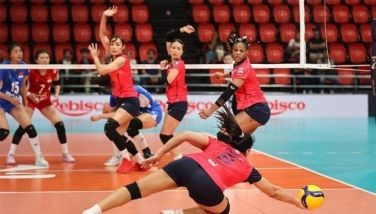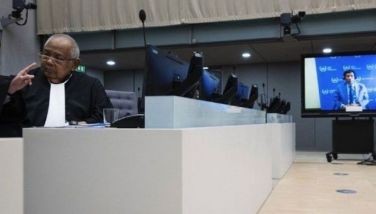Rethinking the SEA Games
In light of all the outrageous rule-bending and hand-tying being done by the hosts of the Cambodia Southeast Asian Games to the other participating nations, the question has been asked if the Philippines should even continue participating in the biennial event. Naturally, you cannot change the system if you are not within it, so the answer to that is no. But the SEA Games Federation should at least agree on a set of acceptable parameters to limit skewing the rules too heavily in favor of the host country, whomever it may be. Here are some suggestions.
A fixed number of total medals. By ascribing a limit on the total number of gold, silver and bronze medals to be staked, you are fencing in the number of medals a host country can donate to itself. If there are already several sacred core sports like athletics, swimming and so on, you can allocate perhaps a certain percentage outside of those sports to the host’s discretion. In that way, the visiting delegations won’t feel shafted, and it won’t impact the overall leaderboard that much. The SEA Games can just have a fixed number of medals allocated to indigenous games of the host country, and the others have the choice whether or not to compete in them.
Deadline and ratio for naturalized athletes. This has become the biggest sore spot for all of the other countries in the Games. Last-minute prestidigitation of passports has caused so much ill will towards the hosts, who look so desperate to win that they will stop at nothing. But if there is a deadline of, say, at least one year before the competition for a naturalized athlete to become eligible, then it equals the playing field and lets the other nations know what they will be dealing with well in advance. Before pros were allowed in international amateur events like the Olympic Games, European and Soviet athletes would simply declare themselves amateur again a short time before competing, then return to their professional status the day after they were done representing their countries, which the rest of the world did not do. Also, a cap of 20 percent of players in any team sport should be imposed, which would be two players in basketball, for example, a more acceptable number. For individual events, no more than one in every four to five athletes should be naturalized.
No splitting of hairs. Each sport should have a fixed number of events, and a fixed number of medals. Combat sports, dancesport and others have seen the number of medals fluctuate from one SEA Games to the next. This really cheapens the sports in question. For example, traditionally dancesport gets two gold medals, one for Latin and one for Standard, even though each is composed of five dances. Allocating one medal per dance waters down the spirit of the sport.
Equal participation for all. Cambodia limited its opponents to 50 to 70 percent of the total number of categories in several sports. This is absolutely unfair and violates the most basic spirit of sportsmanship. Who does that? Why not just compete among yourselves and give your country all the medals, then? Better yet, why not just buy yourselves the medals and save everybody the trouble? The rules should apply to everyone, or no one.
Unanimously approved venues. There is no reason that a linoleum-covered floor should be acceptable as a basketball venue. It’s unreal to believe that an entire country does not have a decent basketball court with a wooden floor. Most schools have them. And if they are unavailable because other sports are using them, then just shuffle the schedule. The same applies to practice venues. No athlete should risk injury just because of the intentional ineptitude of the organizers.
If the SEA Games want to continue in a more credible manner, they should ensure that everyone more or less has a fair shot to win the gold medals at stake. But this writer doubts if any changes will be made, since the other countries which host the games are just waiting for their turn to benefit from the crooked status quo.
- Latest
- Trending





























